Basic needs trump autonomy for Sarawak voters in state election
Sign up now: Get ST's newsletters delivered to your inbox
Follow topic:
KUCHING, SARAWAK - Two independence-seeking parties are contesting the Sarawak election on Dec 18, no doubt seeking to capitalise on what is believed to be a growing sentiment for more autonomy in the Malaysian state on the island of Borneo.
But voters in the rural hinterland of the vast state, which is as big as Peninsular Malaysia, are clearly more concerned with bread-and-butter issues - not surprisingly, as many areas in Sarawak still lack or have limited access to electricity and water and next to no Internet.
The Covid-19 pandemic has only added to their woes.
When the Election Commission (EC) announced safety protocols for the Sarawak election, exceptions were made to the rules. With parts of the state so remote and having limited connectivity, the EC said physical campaigning would be allowed in designated rural constituencies.
But the exception has become the rule as 64 out of the 82 seats in the state assembly were designated as rural.
Mambong, a sprawling constituency with rolling hills and dense forest, and a population of 20,000, is located 30km south of the state capital, Kuching. It includes the town of Siburan and 14 villages, and it can take nearly an hour by road from the town to reach a village.
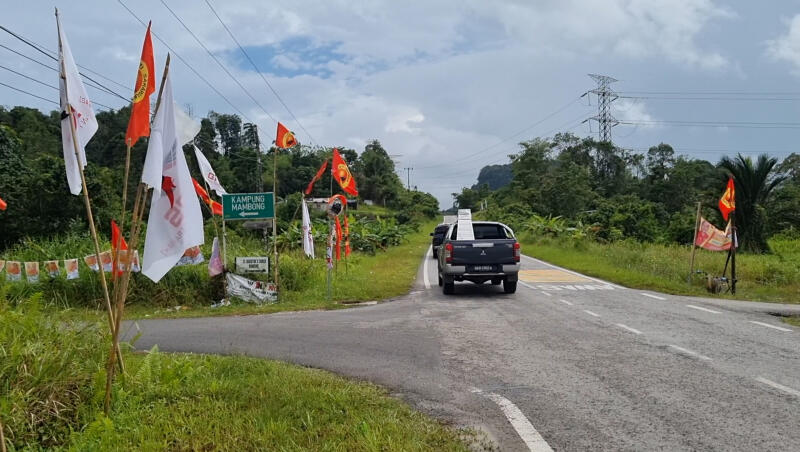
Kampung Mambong, the nearest village to Siburan, is about 10km away from the town, and Internet connection fades or becomes spotty halfway into the journey.
The farthest, Kampung Sait Muk Ayun, located next to the Bengoh Dam, is less than an hour away from the Mambong town centre.
But campaigners have had to travel by car from the town centre and traverse the river on motorboats to reach the village.
Greater autonomy for the state and other esoteric issues have little traction with Jas, a villager.
"There was a storm the other day that damaged 18 houses here, but the YB (assemblyman) was nowhere to be seen," said the 65-year-old, who works his own land.
"You have to come here and provide aid, provide food. During lockdowns, I had no wages. Should I eat sand? I don't care where the party is from, just do your work, serve the area."
The villagers are reluctant to talk for the most part, not wanting to cause offence in their small community.
"We Bidayuhs don't talk much, but when there's an election, we talk through the ballot," said Jas, who wanted to be identified by only one name.
Bidayuhs are the second-largest indigenous ethnic group in Sarawak after the Ibans, and they form the majority in eight seats in the election.
Kampung Mambong has no restaurants or shops in sight. Yet, the village is considered one of the better ones in the area, according to Mr Chang Hon Hiung, who is among the candidates in the constituency.
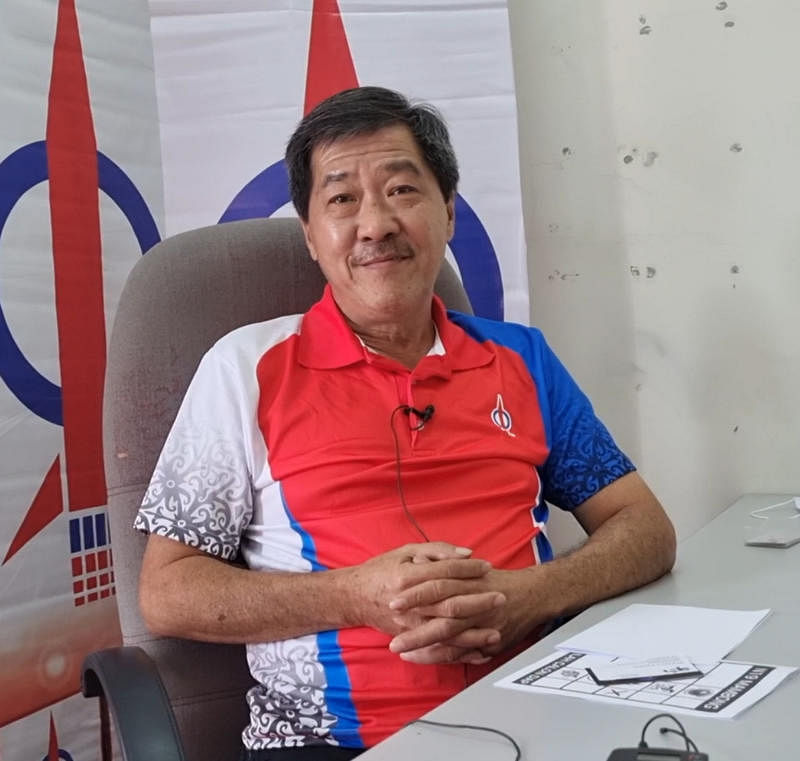
The Democratic Action Party candidate said that at Mambong's farthest points, there is no consistent access to water or electricity, with villagers still fetching water from nearby streams and relying on diesel generators for power.
"What year are we in?" said Mr Chang, who is from Siburan.
Although campaigning is allowed in constituencies such as Mambong, Mr Chang has for now decided against holding gatherings.
"You still need to apply for permission to hold such talks... And we (members of the opposition) don't get permission easily to use the village halls," he said.
Unlike elections in Peninsular Malaysia, local residents are almost always fielded as candidates in any given constituency in Sarawak.
This is best reflected statewide with the ruling Gabungan Parti Sarawak (GPS), a Sarawak-specific coalition that was formed by four former Barisan Nasional (BN) component parties operating only in the state after BN's unprecedented loss in the 2018 General Election.
Parti Sarawak Bersatu (PSB), which is positioning itself as the main challenger to GPS, is also based in Sarawak.
There are four other Sarawak parties contesting the poll, including Parti Bumi Kenyalang (PBK) which, incidentally, has put up the most number of candidates of any single party.
A record 349 candidates from all the parties are contesting - the most in any state election in Malaysia's history.
Ms Ujita Muhammad, a 43-year-old Sarawak-born trader in Siburan, is not too bothered by the home-grown credentials of a party. "It doesn't matter as long as they serve us, and do the work," she said.
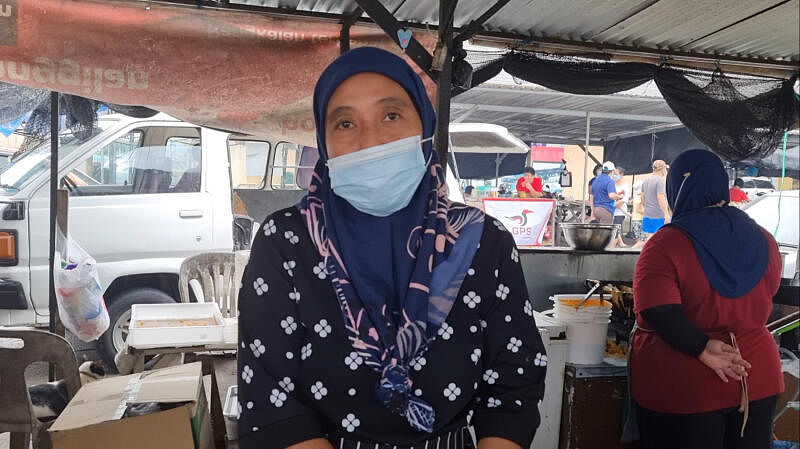
Ms Ujita, who sells banana fritters and fried chicken at an open-air street market in Siburan and belongs to the Malay minority in this part of Malaysia, was quick to point out how the state's dynamics are different from the peninsula.
"There's a trader selling pork here, and I'm also selling here. We don't disturb each other. We are all one," she said.
A similar sight would be rare in Peninsular Malaysia, where there is a marked distinction between halal and non-halal food in markets and elsewhere.
But another trader, Ms Adeline Chin, 54, who also lives in Siburan, believes that local parties are more relevant to voters. "I feel that maybe Peninsular Malaysia parties don't understand the challenges here as well," she said.
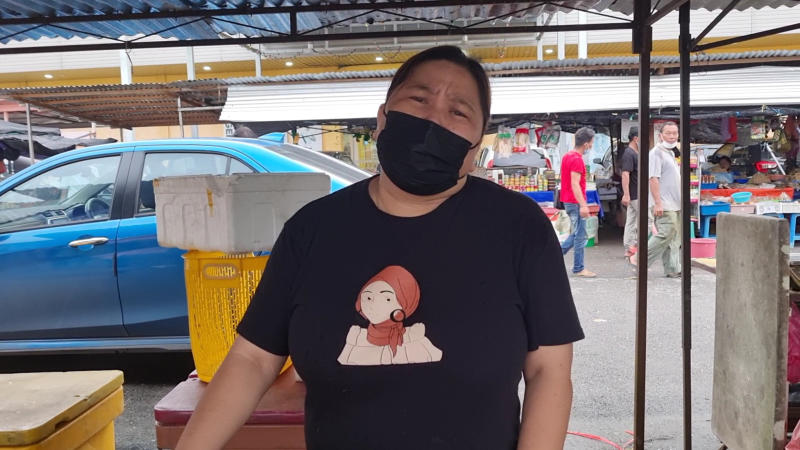
She was drawn to the incumbent GPS candidate for the seat, Datuk Jerip Susil, as he has been helpful and is "of the same race", a stance outlining the dynamics of close ethnic relationships in this area.
Dr Jerip is Chinese-Bidayuh, a mix of the two majority races in Mambong.
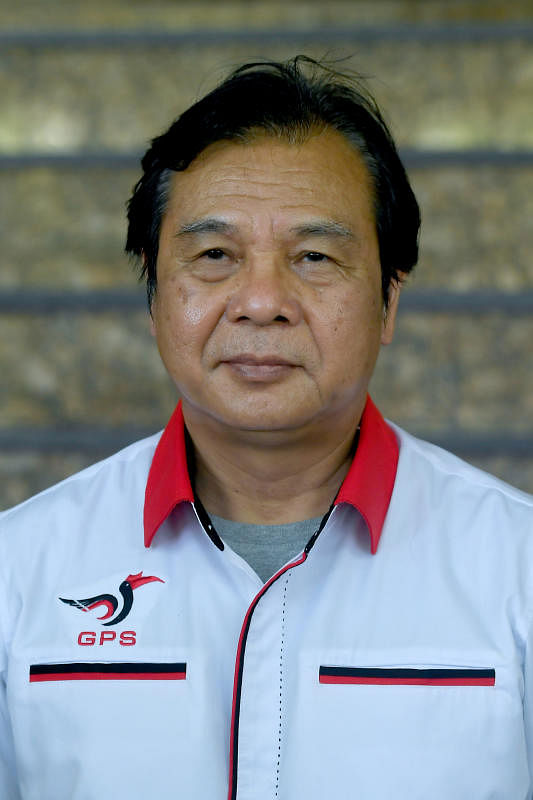
The constituency will witness a five-way fight on Dec 18. Apart from Dr Jerip and Mr Chang, PSB's Sanjan Daik and two other candidates from PBK and Aspirasi - both of which are independence-seeking parties - are contesting.
Sarawak is Malaysia's third-largest economy, but it is also saddled with the third-highest poverty rate in the country, leading opposition politicians to calling it a "rich state with poor people".
More than 1.25 million voters are eligible to take part in next week's poll, although the turnout is expected to be lower than the EC's 70 per cent target.

